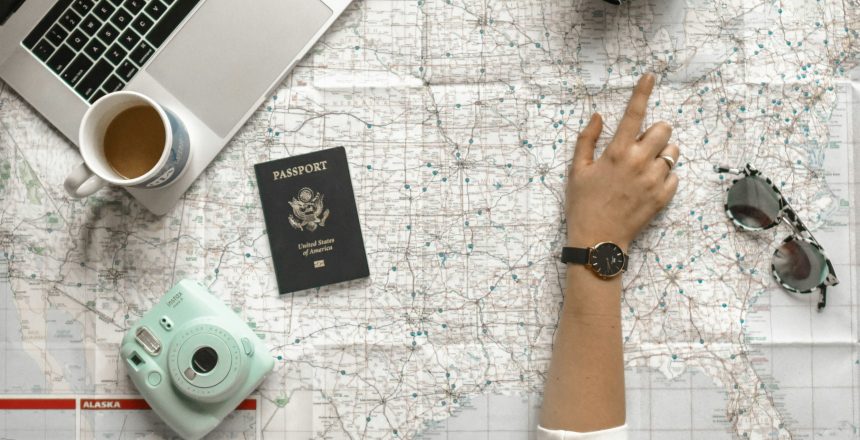
Summertime is in full swing, and with most schools still on break and nice weather in many areas around the country, this is a great time to travel. Having the experience of seeing new places, trying unique foods, and taking a break from everyday life can be very fulfilling. For many, a trip is also the opportunity to relax and recharge for the weeks and months ahead.
While many find enjoyment in travel, there can also be some anxiety and worry present. The prospect of traveling can be stressful for some due to the planning and preparations often required, being away from the comforts of home, and visiting unfamiliar places. For those who are deaf or hard-of-hearing, travel plans may add an extra layer of worry. What if an important announcement is missed at the airport, or there is an inability to communicate with others for directions when lost? The simple thought of being away from supports at home that provide a sense of safety and confidence can be worrisome as well. Although there are certainly valid concerns about traveling with hearing loss, with careful and well-planned preparations, it can still be enjoyable and the opportunity to create lasting memories.
Tips for Travel
As you begin planning for upcoming travel plans, or are simply considering the idea of a trip, know there are a number of things that can be done to relieve some travel anxiety. Here are a few helpful tips to follow:
- Self-Advocate: Inform people that you are deaf and be clear about what you need. Share with hotel staff that you will not be able to hear a knock at the door or a fire alarm, and determine alternatives for emergency situations. Any travel partners should be made aware of the extent of your hearing loss as well, and ensure they understand any potential difficulties.
- Research hotels and airlines: Find hotels that are deaf-friendly and provide necessary and helpful services for this community. Also, check with your airline to see what supports are available.
- Check hearing devices: If using hearing aids, ensure they are working properly and pack an extra set of batteries and a charger. Consider checking in with your audiologist prior to traveling to ensure they are in good working order as well.
- Plan and prepare: Take the time to plan well, learn about the places you will visit, and the transportation you may use. Learn about any supports that are available at your travel locations for those who are deaf or hard-of-hearing. Remember to also bring any items from home that you may find helpful while traveling or staying in hotels.
- Written communications: In case directions are needed, or communication difficulties occur, have a pen and notebook handy. Another option is to use a speech to text app. Try to reserve travel arrangements online so that everything will be in writing, or request to receive reservations in writing. If traveling to another country, consider bringing written basic phrases or requests and “I’m deaf” in the country’s language to help when communicating with others.
- Maximize quiet times: Visit restaurants at quieter times of the day, so there will be less background noise, with the added benefit of staff having more time available if communication is challenging.
- Hearing dogs: If bringing a hearing dog, remember to bring any necessary documentation and vaccinations, and any pet items, such as dishes or food. As a reminder, they should be allowed to ride on the plane with you. For more information about traveling with a hearing dog, check out our blog post, Traveling Abroad with Your Hearing Dog.
- Utilize back-up plans: While some situations are certainly stressful, like missing announcements at the airport, take a deep breath and rely on what you know. Take a look around at the facial expressions of others, review flight monitors at the airport to ensure there are no changes, and self-advocate to ensure any concerns and updates are relayed through an appropriate communication method.
- Practice calming techniques: When communication becomes difficult or there are unforeseen challenges, try to utilize some calming techniques, such as taking deep breaths. If you are feeling a lot of anxiety before traveling, take some time to relax and calm yourself. Perhaps remind yourself of other difficult situations that you have figured out, go for a walk outside, or read a light-hearted book.
Following these tips and taking adequate time to prepare and plan for trips will certainly make a positive impact. Traveling outside the comfort and safety of one’s home can be difficult, but remain confident and stay focused on the memories you will create and sights you will see. If traveling is an important part of your life, or something you simply want to try, make sure to do it.
- Tags: Deaf and Hard-of-Hearing, Traveling, Your Hearing Dog Inc.
